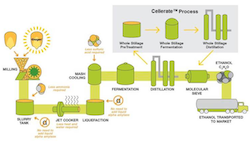Big Oil has been denied again. The U.S. Circuit Court of Appeals for the District of Columbia has found that the American Petroleum Institute (API) and the Engine Products  Group (EPG) did not have standing against keeping E15 out of the marketplace. In the rule the judge wrote, “they cannot show that their members have suffered or are threatened with suffering a relevant injury.”
Group (EPG) did not have standing against keeping E15 out of the marketplace. In the rule the judge wrote, “they cannot show that their members have suffered or are threatened with suffering a relevant injury.”
The court held to their previous ruling in GMA v. EPA and likewise denied standing to those who challenged the E15 waiver decision. Growth Energy successfully sought a waiver from the U.S. Environmental Protection Agency in 2009 to allow retailers and consumers to choose E15 – a blend of up to 15 percent ethanol. EPA granted the waiver in 2011 for all 2001 and newer motor vehicles.
“Today is another victory for ethanol and the American motorist,” said Tom Buis, CEO of Growth Energy. “To continue to achieve the success of the Renewable Fuel Standard, [RFS] Growth Energy led the fight for E15 which is now being sold by over 90 retailers in 14 states. This decision is important because it continues to uphold the choice and savings for the American motorist with E15.”








